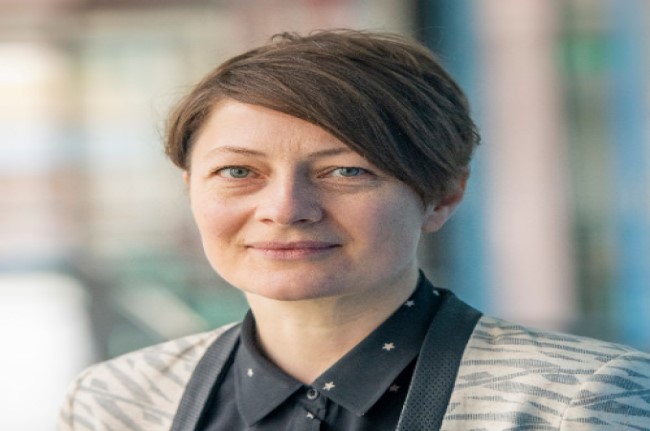Sarah Lewthwaite: A Pioneering Leader in Digital Accessibility and Disability Rights

Sarah Lewthwaite is an influential figure in digital accessibility, disability rights, and inclusive education. As a Senior Research Fellow at the University of Southampton, her work spans digital innovation, disability studies, and teaching pedagogy. Lewthwaite’s significant research on “Teaching Accessibility in the Digital Skill Set” stands as a cornerstone in developing accessible tools for digital inclusion.
Early Academic Background
Sarah Lewthwaite’s academic journey began with a passion for understanding disability rights. She completed her PhD at the University of Nottingham, focusing on disability and social networks in higher education. Her thesis titled “Disability 2.0: Student Experiences of Disability and Social Networks on Campus” sheds light on how disabled students navigate social spaces, particularly through online platforms like Facebook.
During her postgraduate studies, Lewthwaite immersed herself in researching the intersection of education and technology. This foundational work set the stage for her future endeavors, aligning her interests in the digital sphere with a mission for inclusive access for all individuals.
Professional Journey
After completing her doctoral research, Sarah Lewthwaite joined the University of Southampton as a Senior Research Fellow. Her role involves a dual focus on research and teaching, with an emphasis on building educational frameworks that empower disabled individuals through technology.
Her project, “Teaching Accessibility in the Digital Skill Set,” funded by the UK Research and Innovation (UKRI), stands as a major endeavor in the field of digital accessibility. This research aims to develop pedagogical methods that can be integrated into university courses and workplaces, ensuring that digital professionals are well-versed in creating accessible digital tools and services.
Teaching Accessibility: A Groundbreaking Research
One of Sarah Lewthwaite’s most acclaimed contributions is her leadership in the UKRI-funded project that addresses the growing need for digital accessibility. The “Teaching Accessibility in the Digital Skill Set” project, launched in 2019, will continue through 2025. The core focus of the research is on developing a comprehensive body of knowledge around accessibility education for computer scientists, developers, and digital professionals.
This initiative recognizes that while digital technologies have rapidly transformed everyday life, the development of accessible digital tools has not kept pace. As a result, individuals with disabilities face digital exclusion. The research tackles this issue by equipping the future workforce with the knowledge needed to design accessible tools that can be used by everyone, including people with disabilities and older individuals.
The project is not limited to theoretical frameworks. It employs a variety of participatory methods, bringing educators, developers, and professionals together to create an inclusive learning network. These collaborative efforts are essential for building a pedagogical culture that fosters accessibility as a standard in digital development.
Critical Disability Studies and New Media
Beyond her work on digital accessibility, Sarah Lewthwaite is also deeply involved in critical disability studies and the role of new media in shaping disabled experiences. Her research highlights how new technologies can both empower and marginalize individuals with disabilities, depending on how they are designed and implemented.
Lewthwaite advocates for an approach that considers the socio-cultural and political dimensions of disability. Her work argues that accessibility should not be seen as an add-on feature in digital tools but as an integral aspect of their design. By doing so, society can move toward a more inclusive digital landscape that caters to diverse users.
Impact on Higher Education
In addition to her contributions to digital accessibility, Sarah Lewthwaite’s research has profound implications for higher education. Her work on the “Pedagogy of Methodological Learning” project with the ESRC National Centre for Research Methods focused on how social science research methods are taught in higher education.
This research addresses the need for innovation in how research methods are taught, emphasizing the importance of teaching accessible research practices. Her findings stress that educators must adopt new pedagogical strategies to teach advanced research methods, making these techniques accessible to students from diverse backgrounds, including those with disabilities.
Lewthwaite’s efforts in this area have led to a rethinking of how educators approach research methods in higher education, pushing for more inclusive and innovative teaching practices.
Awards and Recognitions
Sarah Lewthwaite’s work has earned her numerous accolades. In 2019, she was awarded the prestigious UKRI Future Leaders Fellowship, recognizing her groundbreaking contributions to accessibility education. This fellowship supports emerging leaders in research, enabling them to advance their work on a global scale.
Lewthwaite is also a Fellow of the Royal Society of Arts (FRSA), an honor granted to individuals who have made outstanding contributions to social progress. Her expertise has been sought in multiple international forums, including the Web Accessibility Initiative (WAI) where she contributes as an invited expert.
Collaborations and Contributions
Lewthwaite’s influence extends beyond academia through her involvement with global organizations dedicated to improving accessibility. She has collaborated with the World Wide Web Consortium (W3C) as part of the Web Accessibility Initiative’s Education and Outreach Working Group. This role involves contributing to the development of the WAI Curricula, which helps educators create courses on web accessibility.
Additionally, Lewthwaite has served as a judge for the Global Mobile Awards in the category of Best Mobile Innovation for Accessibility and Inclusion, recognizing new and innovative products in the mobile industry that promote accessibility.
The Future of Accessibility
Looking forward, Sarah Lewthwaite’s work continues to shape the landscape of digital accessibility and disability rights. With her ongoing project set to conclude in 2025, the outcomes of her research will undoubtedly influence how accessibility is taught and practiced in both academic and professional settings.
Her research not only addresses the immediate need for accessible digital tools but also seeks to create a lasting change in how society views and implements accessibility. By educating the next generation of digital professionals, Lewthwaite is laying the groundwork for a more inclusive and equitable digital future.
Conclusion
Sarah Lewthwaite’s work as a leader in accessibility education and disability rights is both transformative and far-reaching. Her research has made significant strides in bridging the gap between digital innovation and inclusion, ensuring that digital tools and services are accessible to all individuals, regardless of ability. As her work continues to evolve, Lewthwaite’s contributions will leave a lasting impact on both academia and the broader digital landscape.
Her leadership in critical disability studies, coupled with her dedication to improving accessibility education, positions her as a pioneering figure in shaping a more inclusive society. Through her efforts, Lewthwaite has shown that accessible technology is not just a possibility but a necessity for the future.



